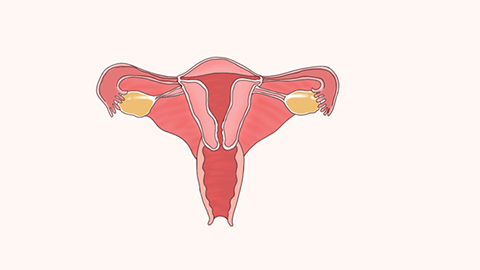How to manage low progesterone and thin endometrium
In general, low progesterone levels and thin endometrium may be caused by excessive dieting for weight loss, high mental stress, polycystic ovary syndrome (PCOS), hyperprolactinemia, intrauterine adhesions, and other factors. It is recommended to seek medical attention promptly, identify the underlying cause, and then improve the condition under a doctor's guidance through lifestyle adjustments, medication, and other methods. Specific analysis is as follows:

1. Excessive dieting for weight loss: Inadequate nutrient intake affects hormone synthesis and endometrial repair, leading to reduced progesterone secretion and thinning of the endometrium. Stop restrictive dieting, ensure adequate intake of protein and healthy fats, eat more lean meat, soy products, and nuts, consume sufficient daily calories, and gradually restore body weight and hormonal balance.
2. High mental stress: Prolonged anxiety can disrupt hypothalamic-pituitary function, suppress progesterone secretion, and impair endometrial growth. Practice 20 minutes of meditation or yoga daily, avoid staying up late, maintain regular sleep patterns, communicate frequently with family and friends, and seek psychological counseling when necessary to relieve stress.
3. Polycystic ovary syndrome (PCOS): Endocrine disorders lead to abnormal ovulation and insufficient progesterone production, resulting in a thin endometrium due to lack of hormonal support. Follow medical advice to use medications such as dydrogesterone tablets, ethinylestradiol cyproterone acetate tablets, and spironolactone tablets to regulate hormones. At the same time, manage body weight and reduce intake of high-sugar and high-fat foods.
4. Hyperprolactinemia: Elevated prolactin levels suppress ovulation and progesterone synthesis, indirectly causing poor endometrial development. Take medications such as bromocriptine mesylate tablets, vitamin B6 tablets, or cabergoline tablets as prescribed to lower prolactin levels. Avoid prolonged breast compression and maintain regular作息 (daily routines).
5. Intrauterine adhesions: Damage to the basal layer of the endometrium from uterine procedures can lead to adhesions, resulting in a thin endometrium and associated progesterone abnormalities. Hysteroscopic adhesiolysis is required, followed by placement of an intrauterine device (IUD) to prevent re-adhesion. Concurrent sequential estrogen-progestogen therapy should be used to promote endometrial repair.
In daily life, keep the abdomen warm and avoid raw or cold foods. Women who are planning pregnancy can take folic acid under medical guidance and regularly monitor progesterone levels and endometrial thickness. Engage in moderate exercise such as brisk walking or jogging to improve blood circulation and support recovery of bodily functions.




